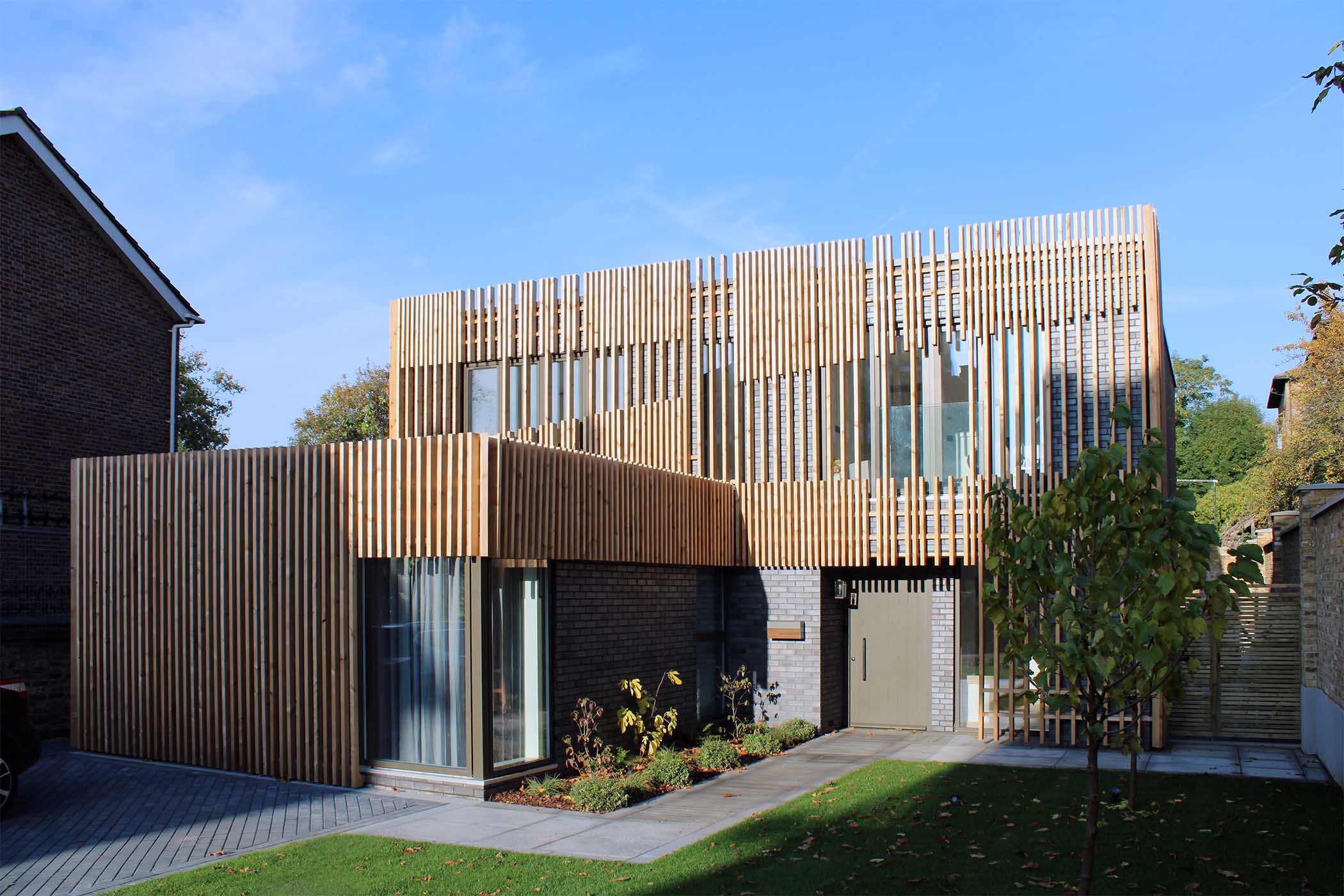-
Off-Plan Investing, Off-Plan in Dubai, and Off-Plan Properties: A Strategic Approach for Real Estate Investors
In the dynamic world of real estate investment, off-plan opportunities have garnered significant attention, particularly in booming markets like Dubai. Aspiring and seasoned real estate investors are increasingly exploring the potential of off-plan properties to diversify their portfolios and capitalize on promising returns. In this blog post, we delve into the concept of off-plan investing, explore the allure of off-plan properties in Dubai, and provide strategic insights for savvy investors seeking to optimize their investment endeavors.
Advantages of Off-Plan Investing, Off-Plan in Dubai, and Off-Plan Properties
Dubai, a thriving global city known for its innovative architecture and luxurious lifestyle, has emerged as a hotspot for off-plan investments. The city’s ambitious development projects, coupled with investor-friendly regulations, make it an enticing destination for those seeking to diversify their portfolios. Off-plan properties in Dubai often come with flexible payment plans, allowing investors to spread their investment over time. According to the source Offplaninvest.com, these are the biggest advantages of investing in off-plan:
1. Potential for Capital Appreciation:
As mentioned earlier, off-plan properties offer the potential for significant capital appreciation. Buying at a lower price during the pre-construction phase can lead to substantial gains when the property’s value increases upon completion, especially in markets with high demand and development potential like Dubai.
2. Tailored Payment Plans:
Off-plan properties often come with flexible and investor-friendly payment plans. Buyers may be able to spread their payments over the construction period, making it more manageable for investors with budgetary constraints or those looking for a long-term investment strategy.
3. Choice of Prime Locations and Units:
By investing off-plan, investors have access to a broader selection of prime locations and unit types. This allows them to choose properties that align with their investment objectives, whether it’s for rental income, personal use, or capital appreciation.
4. Ability to Customize:
Off-plan investors may have the opportunity to customize certain aspects of their property, such as finishes and layouts. This level of personalization can enhance the appeal of the property to potential buyers or tenants, ultimately benefiting the investor.
Disadvantages of Off-Plan Investing, Off-Plan in Dubai, and Off-Plan Properties
1. Construction Delays:
One of the most significant risks of off-plan investing is construction delays. Factors like weather, labor shortages, or regulatory issues can cause delays in completing the project. These delays may impact the expected timeline for rental income or resale, potentially affecting the investor’s cash flow and return on investment.
2. Market Volatility:
Real estate markets can be subject to fluctuations and uncertainties. While off-plan properties have the potential for capital appreciation, changes in market conditions could lead to lower-than-expected returns or challenges in selling the property when completed.
3. Developer Risk:
Investors need to carefully assess the reputation and track record of the developer before committing to an off-plan investment. In some cases, developers may face financial difficulties or fail to deliver on their promises, leading to potential losses for investors.
4. Changes in Property Regulations:
Government regulations and policies in the real estate sector can change, affecting the viability of an off-plan investment. Investors should stay updated on any legislative changes that could impact their investment decisions.
Potential for Capital Appreciation
One of the primary draws of off-plan investing is the potential for capital appreciation. As properties are typically purchased at a lower price during the pre-construction phase, investors stand to gain from any increase in the property’s value over time. With Dubai’s continuous development and increasing demand for premium properties, investors may enjoy substantial returns on their investments when the property is completed.
Tailored Investment Opportunities
Off-plan properties offer investors the flexibility to tailor their investments according to their risk appetite and financial goals. By carefully selecting the location, developer, and type of property, investors can align their off-plan investments with their broader investment strategy and long-term objectives.
Early-Bird Incentives and Discounts
Developers often incentivize off-plan purchases with attractive deals, such as discounted prices, payment plans, or added amenities. As an off-plan investor, taking advantage of these early-bird incentives can result in significant savings and improved return potential.
Conducting Due Diligence
While off-plan investing presents exciting opportunities, conducting thorough due diligence is critical for mitigating risks. Researching the developer’s track record, the property’s location, and market trends can help investors make informed decisions and avoid potential pitfalls.
Conclusion
Off-plan investing, particularly in Dubai, offers real estate investors a strategic approach to diversify their portfolios and capitalize on promising returns. With potential for capital appreciation, tailored investment opportunities, and early-bird incentives, off-plan properties present an attractive proposition for both aspiring and seasoned investors. However, it is crucial to conduct thorough due diligence to navigate the nuances of off-plan investing and make informed decisions. As the real estate landscape continues to evolve, a well-planned off-plan investment strategy can be a stepping stone toward achieving financial goals and building a robust and diversified real estate portfolio.
-
Théorie architecturale
La bureaucratie est généralement provoquée par le contact homogène entre divers acteurs sociaux et les forces politiques homogènes. La redondance bureaucratique des connexions a tendance à être considérablement réduite par l’agence d’architecture. Le modèle organisationnel fonctionne également comme une source majeure d’hétéropiles et d’homophilie.
À l’époque moderne, la bureaucratie existe toujours sous la forme d’architectes. Une majorité d’architectes vivent dans un environnement très structuré de réseaux professionnels et personnels. L’agence d’architecture, cependant, est devenue plus importante que jamais parce que c’est plus qu’un métier pour de nombreux architectes. C’est une occasion pour beaucoup de participer au processus de conception et de construction.
L’agence d’architecture est également un exemple intéressant d’architecture étant une activité artistique pouvant avoir des résultats pratiques et esthétiques. La discipline des études architecturales tente de résoudre des problèmes en créant des solutions innovantes. En ce sens, c’est une branche d’architecture. Il existe une large gamme de sujets dans le domaine des études architecturales, telles que la planification urbaine et la conception, la durabilité et la recherche sur la construction.
L’agence d’architecture, comme d’autres spécialisations architecturales, est également un exemple d’art spéculatif. La pratique de la fabrication de l’art, comme d’autres types d’art spéculatif, peut prendre de nombreuses formes différentes. L’agence d’architecture, cependant, n’est pas réellement connectée à un support particulier. À certains égards, le domaine de l’agence d’architecture peut être considéré comme une branche indépendante de l’architecture.
L’agence d’architecture, comme d’autres spécialisations architecturales, est également un exemple d’art spéculatif. La pratique de la fabrication de l’art, comme d’autres formes d’art spéculatif, peut prendre de nombreuses formes différentes. L’agence d’architecture n’est pas nécessairement une branche de l’architecture. Cependant, le travail des architectes spécialisés dans l’agence d’architecture peut aider les architectes futurs à explorer différentes formes de réalité architecturale. L’agence d’architecture peut également fournir un aperçu de la nature des formes et des formes.
L’agence d’architecture peut avoir un effet profond sur la forme et la fonction d’un bâtiment. Un beau bâtiment, unique dans son architecture, et avec un design d’intérieur tout aussi unique, peut servir son objectif pendant une longue période. Le succès d’un bâtiment dépend en grande partie de sa capacité à intégrer l’élément humain dans la conception esthétique globale. Cette intégration est obtenue en concevant un bâtiment d’une série de formes et de formes structurelles de base, associées à des embellissements géométriques ou formels. Cette intégration contribue également à déterminer si le bâtiment sera utilisable pendant une longue période.
-
Que fait une entreprise architecturale?
Les architectes et les agences d’architecture sont responsables de la création d’œuvres d’art et d’architecture. Ils donnent également une forme à l’architecture et aident un nombre croissant de personnes à réaliser leur rêve d’avoir leur propre maison. Dans le passé, des architectes étaient choisis parmi un petit nombre de professionnels associés à une entreprise particulière. Cependant, ce n’est plus le cas. Ces jours-ci, tout le monde peut appliquer en tant qu’architecte, quels que soient les liens ou les connexions qu’ils peuvent avoir avec tout organisme ferme ou professionnel spécifique.
L’histoire de l’architecture remonte au XIIIe siècle. A cette époque, l’architecture était principalement le travail des hommes. Les hommes ont été impliqués dans la construction de palais, de forteresses, de temples et d’autres bâtiments pour le roi et les personnes qui ont condescendu les œuvres architecturales effectuées par ces hommes. Au fil du temps, et avec la montée des compétences techniques des personnes, le rôle des architectes a également changé. À l’époque moderne, il existe de nombreux types d’architecture et de travail différents, mais la plupart d’entre elles sont centrées sur le concept de conception des installations résidentielles, de bureau et de santé.
Habituellement, avant qu’un projet de construction puisse commencer, une étude de faisabilité est nécessaire. Cette étude détermine la quantité d’argent requise pour le projet, ainsi que la période de temps nécessaire à l’ensemble du projet. Ensuite, après cela, une offre est émise par l’agence d’architecture. Cette offre est disponible pour toute entreprise souhaitant soumissionner pour le projet.
Après la publication de l’offre, les sociétés gagnantes ou les individus sont choisies par l’agence d’architecture. Ces entreprises sont responsables de toute la tâche de transformer l’idée d’un certain projet dans la réalité. Le concept ou la conception du projet seront suivis, puis les spécifications des matériaux à utiliser, ainsi que les professionnels à travailler sur ce projet particulier seront également suivis. Outre cela, les entreprises devront également compléter tous les projets déjà décidés.
L’agence d’architecture travaille également à l’amélioration de la commercialisation de certains projets en faisant un sujet de conversation. Cela se fait en obtenant des commentaires des entreprises choisies et des personnes impliquées dans le projet. Cela leur permettra de faire des changements mineurs qui seront nécessaires pour améliorer la commercialisation d’un projet. Ces changements sont cependant;Non invasif, ce qui signifie qu’ils ne nécessiteront pas de réduire les arbres et d’autres problèmes environnementaux. Cela signifie que l’impact de l’environnement ne sera pas significatif et ne fermez pas d’entraver les progrès du projet.
Une entreprise choisie complète également la phase de dessin d’architecte. C’est là que l’agence d’architecture aide à choisir le meilleur architecte d’établir le plan architectural du projet. L’agence d’architecture garantit que l’architecte choisi a les compétences et les capacités nécessaires pour créer et gérer le plan directeur. Après cela, l’agence d’architecture continue d’achever un brouillon de la conception. L’agence d’architecture cherche ensuite l’aide d’une société tierce qui aidera à rendre le rendu des plans de construction et finalement la construction du projet.
-
How to Hire an Architectural Agency
An architectural agency is a business that produces and develops concepts for constructing buildings and other related works, under the guidance of architects. It is usually a team of specialists, with the lead being the architect. The architects are those skilled persons who are trained to design buildings and other related works. It is generally run by an owner or a group of owners, although there are firms that run only specific projects.
A professional architectural agency will seek to ensure that the client’s needs are met in the most efficient way. If you want to hire a professional company to handle your project, you will need to be sure that the company is experienced enough, and also has the proper skills. Some of the things that you should look for in an architectural agency include:
When looking to hire an architectural agency, make sure that they have been involved in projects that are similar to yours. The architectural firms that you contact will have more experience than companies that have never done any work on a similar project. The companies that you contact should have a project manager, an experienced supervisor and a full-time contract with the architect who is going to manage the project. They should provide you with regular updates and a lot of project documentation.
It is also important to find out whether any of the companies you are talking to can offer you any references. This will help you find out if they have done good work on previous projects. Before hiring an agency, you will also need to find out if they can offer any guarantees or warranties. A good contractor should be able to provide you with this kind of guarantee.
You will also need to talk to the people who will actually be doing the work on your proposed building. When it comes to working with architectural agencies, you have the right to request some feedback on the project from the people who will actually be working on it. In fact, many architects and architectural firms have a blog where people can read about their work and what they like or dislike about it. This can be a great way to get a general idea of the firm and what you can expect. You can also ask your potential architectural agency for a list of past clients so that you can have a better idea of their level of professionalism and expertise.
Once you find the architectural agency that you want to hire, you will probably have to sign a contract. This contract will outline all the specifics of the project, including who will be responsible for paying the bill and any subcontractors that will be needed. This contract will also state who is responsible for taking care of the architect’s signature and providing work. It is usually best if you include clauses in the contract about what happens if the client doesn’t pay their bill or if something unexpected occurs. That way you can protect yourself in case something like this ever happens.




